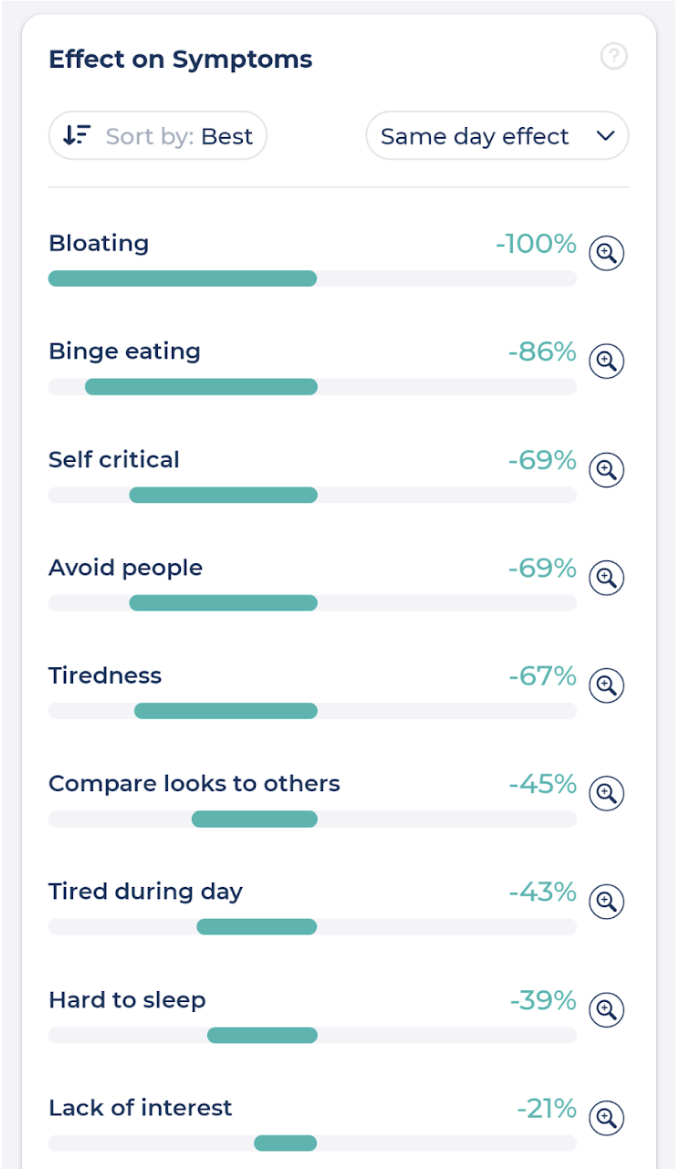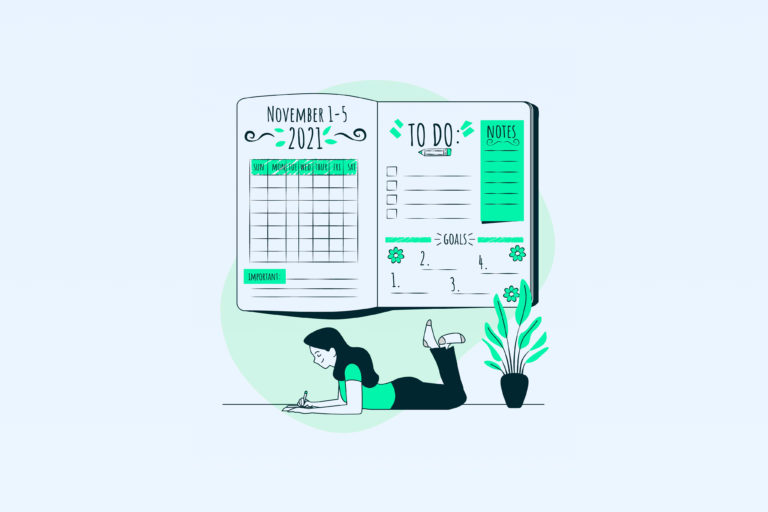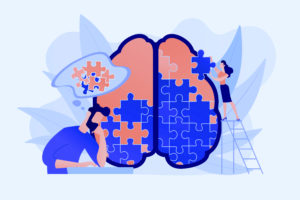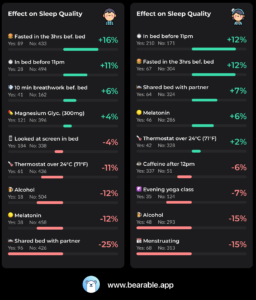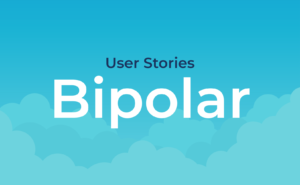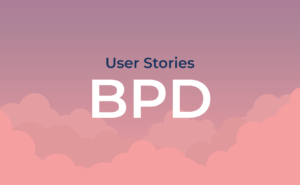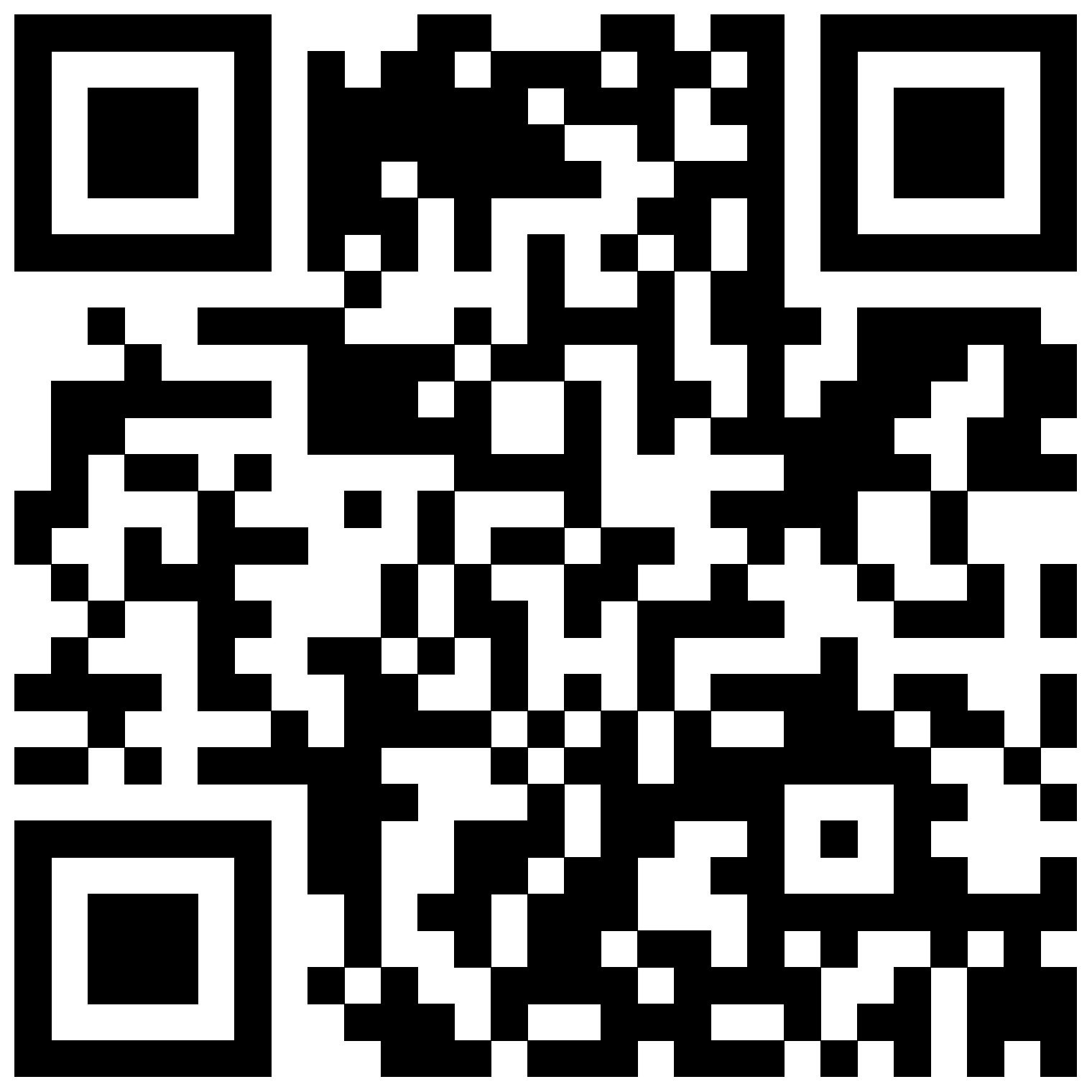 To be clear, I’m not talking about simply tracking the impact of using Bearable on my health but the impact of spending 20 minutes a day writing expressively in a journal.
More than anything, I want to track the impact that consciously working through negative thoughts can have on my health. With the aim of answering the question: Is there an advantage to writing a journal as well as keeping track of my symptoms, factors, sleep, etc.?
With good reason too.
Journaling has become a trend in the productivity, self-care, and self-improvement spaces. With more and more notebooks and apps pushing their users to set goals, read motivational quotes, and bullet their tasks for the day/week/month/year.
So it’s important to ask: Does journaling really work?
To be clear, I’m not talking about simply tracking the impact of using Bearable on my health but the impact of spending 20 minutes a day writing expressively in a journal.
More than anything, I want to track the impact that consciously working through negative thoughts can have on my health. With the aim of answering the question: Is there an advantage to writing a journal as well as keeping track of my symptoms, factors, sleep, etc.?
With good reason too.
Journaling has become a trend in the productivity, self-care, and self-improvement spaces. With more and more notebooks and apps pushing their users to set goals, read motivational quotes, and bullet their tasks for the day/week/month/year.
So it’s important to ask: Does journaling really work?
How is journaling supposed to impact your health?
Journaling is a form of expressive writing or writing therapy that enables “the writer to gain mental and emotional clarity, validate experiences and come to a deeper understanding of him/herself” through self-reflection. Essentially, it’s a way of expressing your thoughts and feelings without having to talk about them. As a result, it’s possible to obtain some of the benefits that people might often associate with something like therapy. In fact, studies have found that journaling has helped to improve mental health, heal wounds faster, and lead to fewer visits to the doctor. However, it’s important to point out that some studies have shown that journaling doesn’t help everyone. So who can it help?-
- People that struggle to talk about their feelings
- Introverted people
- People who struggle to concentrate or organise their thoughts
- People with little social support
- People with high levels of social constraints
- People who have issues with their memory
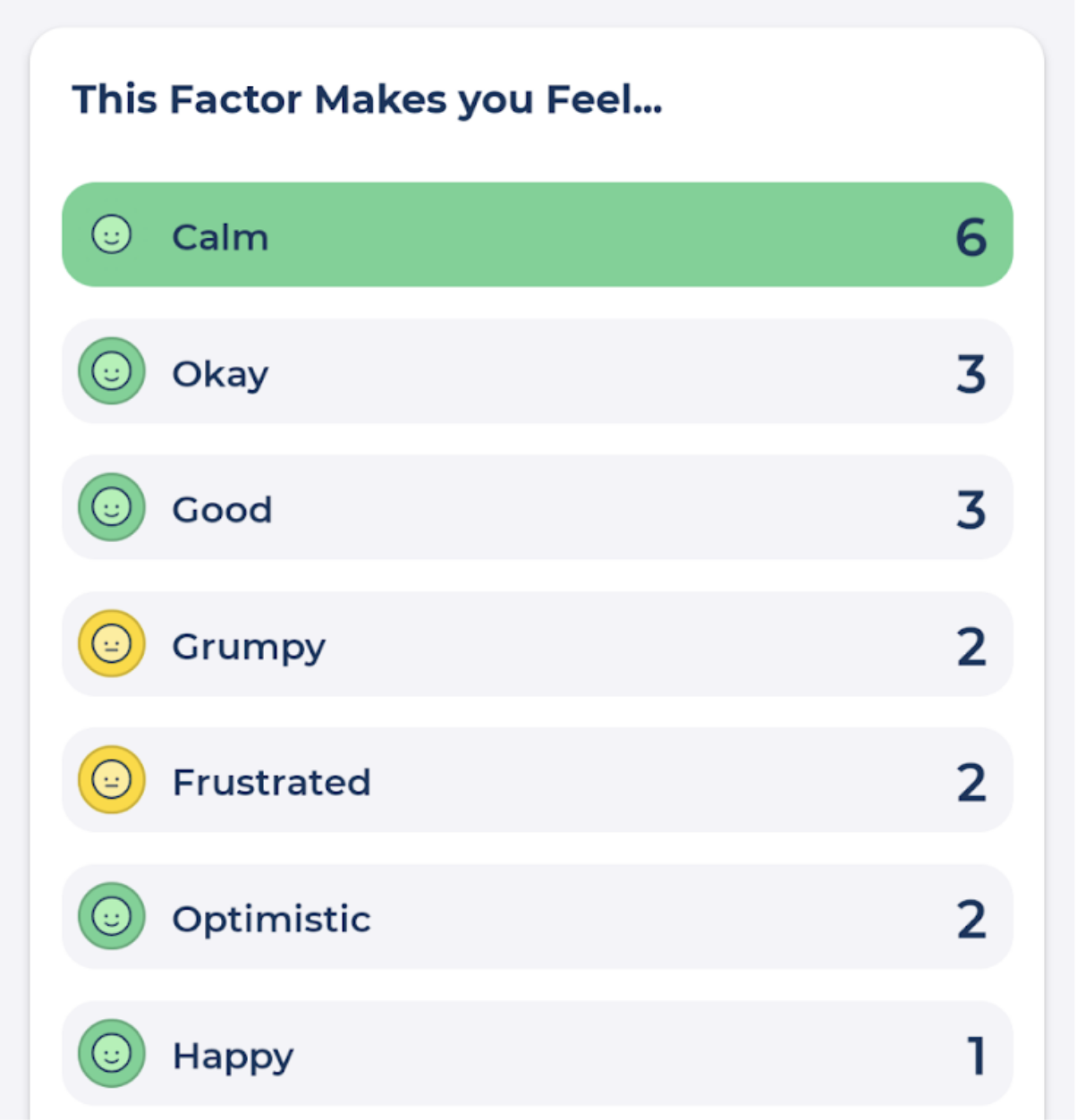
Isn’t journaling just writing a diary?
It can be. But studies suggest that expressive writing can be more impactful than simply keeping a diary. Often, journaling is most useful when it’s practised daily and it’s recommended that you commit to 20 minutes every day for four days. At least during times when you need to work through specific challenges in your life. As a quick overview of how to practice an effective form of expressive writing or journaling:-
- Find a quiet place
- Write continuously for 20 minutes
- Write about something that’s personal and important to you
- Don’t worry about spelling or grammar
- If something feels too difficult to write about, don’t write about it
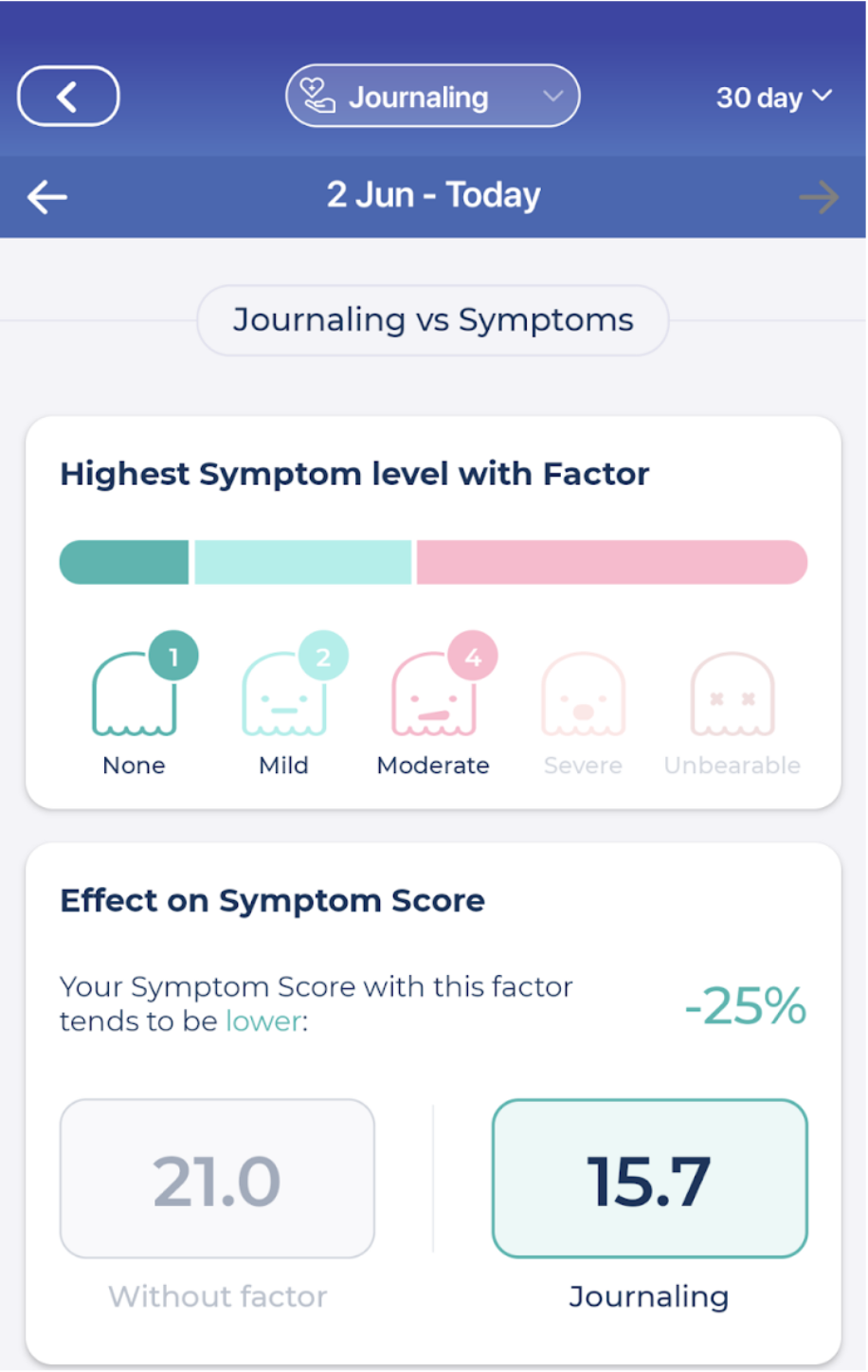
How was my first week of writing a journal?
Instead of a pen and notepad, I decided to write my journal using the notes section in Bearable. This way I’d be able to see the impact of specific notes on my symptoms, mood, sleep, and energy.Day One: I sat down with my pad and pen and didn’t really know what to write about. After about 5 minutes I began by writing a normal diary entry; things I did that day. It quickly became easy to allocate the thoughts that I needed to journal about.
Day Two: I was incredibly grumpy and stressed but I was struggling to figure out why. Journaling came a bit more easily when I had a specific problem that I wanted to think about and understand.
Day Three: The symptoms of my depression had been getting worse and I was feeling a bit hopeless and lacked any energy or motivation. Writing the journal became an act of gratitude. I tried to write about all the things that I appreciated and felt good about.
Day Four: I wrote about an ongoing issue in my personal life. It felt good to externalise some of my thoughts but it also left me feeling a bit sad.
Day Five: I was incredibly grumpy again and was struggling to understand why. Journaling helped me to gain some perspective and see a bigger picture. Whilst it didn’t resolve the issue, it at least helped me to understand my mood.
Day Six: I was in a very good mood. With no big problems to resolve today, I wrote about why I was happy as a reminder to myself, something to reflect on. I also spent some time planning some goals and tasks to work towards.
Day Seven: I was in another good mood and struggled to have anything to write about. I ended up exploring the ideas behind why I was happy, what was making me happy, why it was making me happy, and how I could try to ensure that I had more of these experiences in my life.
What did the data in Bearable tell me about the impact of journaling on my health?
Average Mood Score improved by 10% Average Symptom Score improved by 25% Average Energy Score improved by 8% Average Sleep Quality worsened by 4% Average Sleep Quantity worsened by 2%How were symptoms of Anxiety, Depression, Insomnia, and BDD impacted by journaling?
Binge eating improved by 86% Being self-critical improved by 69% Avoiding people improved by 69% Tiredness improved by 67% Difficulty sleeping improved by 39% Lack of interest improved by 21% Avoiding my appearance worsened by 40% Worrying about my body shape worsened by 16% Worrying about my weight worsened by 8%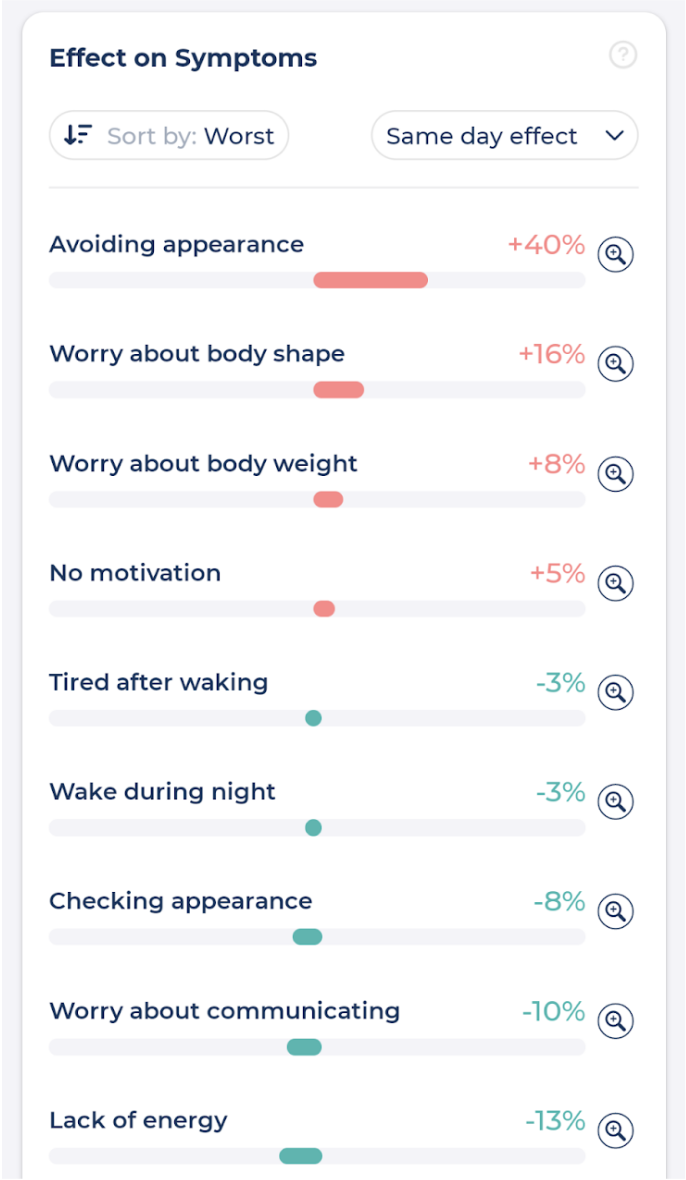
What impact did journaling have on my health?
This experiment coincided with a period when symptoms of my body dysmorphia and disordered eating were worse than they had been for some time. So it’s of interest to me to see how journaling impacted these symptoms as well as others. Overall, I think journaling helped me to:-
- Better understand problems
- More quickly understand root causes of problems
- Identify solutions to problems
- Feel better about problems
- Find ways to communicate my problems with others
- Organise my thoughts, plans, and intentions
-
- I dwelled on, or over-thought some problems
- Problems without solutions caused me frustration
- I often felt down or sad after writing and this didn’t always go away
- I dug up some problems that were better left buried
- I tended to compare myself to others more often
